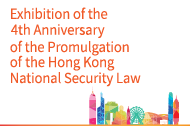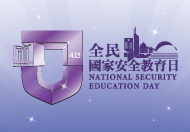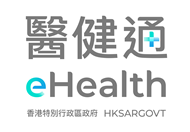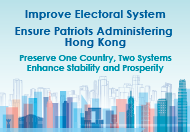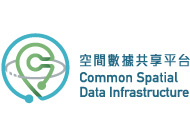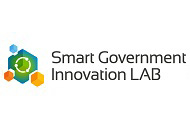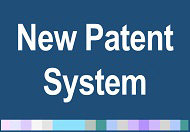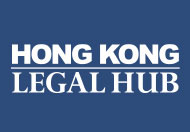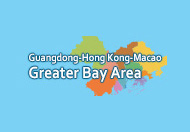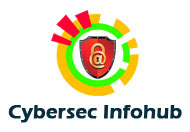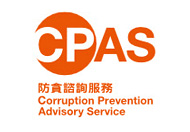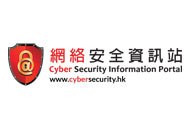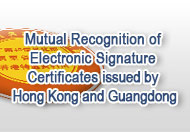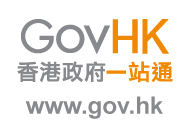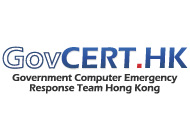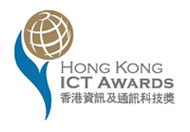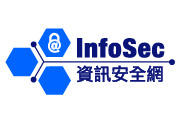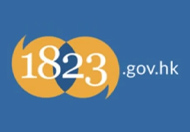Public Comments on the "Consultation Paper on the Review on Administration and Assignment of Internet Domain Names and Internet Protocol Addresses in Hong Kong"
| Reference No. |
:
|
DN13 |
| Date of Submission |
:
|
13.07.2000 |
| Submitted by |
:
|
Mr Ron Cameron Head, Trade Practices Division Consumer Council |
Consumer Council
Response to Consultation Paper
on the Review on Administration and Assignment of Internet Domain
Names and Internet Protocol Addresses in Hong Kong
Introduction
1. The Consumer Council welcomes the move by the Government to review the administration and assignment of Internet domain names (DN) and Internet Protocol (IP) addresses in Hong Kong.
2. At the outset, the Council wishes to express its general support for the proposed structure of the administration and assignment of Internet DN and IP. In particular, it welcomes the setting up of a non-profit, non-statutory and self-financing entity to take over the work currently undertaken by the Joint Universities Computer Centre. The Council believes that the new arrangement will speed up the development of e-commerce and play an important role for Hong Kong when its consumers and businesses engage in electronic commerce.
3. The Council fully supports the view that applicants should avoid infringing upon the intellectual property rights of a third party. It also believes that reserving domain name consisting of well-known international trademark, service marks and brand names as well as some other restricted used names by the registration authorities can impede cyber squatting.
4. Although the Council agrees with the Government that prohibiting legitimate transfer of domain names may be too restrictive, there is no control mechanism in place to discourage the speculation over domain names if it allows the transfer of domain names. The Council urges that the proposed domain name administration body should consider necessary steps to address this matter in future.
5. The Council would also like to take this opportunity to recommend certain safeguards to satisfy consumer protection, and competition concerns.
Competition and Consumer Safeguards
6. The Council supports the view that the domain names should be registered on a "first come. first served" basis and only companies and organizations registered or incorporated in Hong Kong are allowed to register domain names ending with .hk.
Selection of registrar
7. The Council agrees with the Government's proposal that the existing practice should continue in having a single domain name registrar for the .hk domain name administration (except .gov.hk and .edu.hk). However, the Council recommends that the Government consider using the criterion of whoever can offer the lowest registration fee, as the means to select the domain name registrar.
Registrar's Agents
8. The Government has suggested that the registrar may engage agents to perform some of the routine registration work, implying therefore that there could be competition between multiple agents in providing registration services. With the current exponential growth in Internet activities, the need for multiple registrars is most likely inevitable. In these circumstances, some recognition should be given to the need for consumer and competition safeguards in order that the market operates efficiently.
9. For example, it is possible that some agents might misrepresent their services in order to obtain unfair advantage over competitors, even though they have signed an agreement to adhere to the same set of registration practices and procedures as required by the registrar. In addition, unless there is ongoing monitoring of the sector, there may be a risk that in a rapidly changing environment, particularly as the .hk domain could become a market in its own right, that opportunities to correct market distortions might be lost. This could result in the impairment of efficiency in the sector, and industry structures that could make reforms difficult.
10. The Council suggests that as a precaution, the registrar be given the task of monitoring whether agents comply with appropriate rules of market place behavior that provide for certain consumer and competition safeguards. Some suggestions are as follows.
Misleading and deceptive conduct
11. The guidelines issued by the Office of the Telecommunications Authority for telecommunications service providers, on acceptable advertising practices, noted below, could serve as a basis for formulating appropriate principles that agents should follow when marketing their services to the public.
- Advertising should be clean, honest and truthful.
- Comparative advertising is acceptable so long as references to a competitor, or a competitor's products or services is fair, reasonable and not misleading.
- Advertisements which criticize a competitor or a competitor's products or services should be avoided.
- Disparaging or smearing advertising does harm to the image of the industry.
- Advertisements should be capable of substantiation.
- The purpose is to prove any claims made in advertisements. While the substantiation need not be unequivocal, it is good practice to indicate the source of research or authority on which the claim is based.
- The use of superlatives should be avoided unless substantiated by facts.
- Technical jargon and technology comparisons should be used with care. Inappropriate use of jargon and comparisons can be counter productive in that it tends to confuse and mislead the consumers rather than explain the merits of the products or services.
- The identity of the product/service provider should be clearly indicated in all promotional materials that consumers have no doubt which company is providing what products and services.
- Advertising should maintain decency and good taste.
Competition oversight
12. In the Government's May 1998 Statement on Competition Policy the Government noted that industry self regulation (such as codes of practice) could be one means by which competition could be promoted, thereby attaining the objectives of economic efficiency and free trade.
13. The Council suggests that the domain name registrar could establish a general competition code of practice, against which registrars would be assessed, requiring them to refrain from certain restrictive practices that distort markets and impair economic efficiency or free trade. Examples were given in the Government's policy statement, such as price-fixing, bid-rigging, and market allocation. A simple complaints handling procedure could be maintained by the registrar, where any restrictive trade practices that allegedly impair economic efficiency and fair trade, could be subject to scrutiny and sanctioning, or otherwise, by the registrar.
Alternative Dispute Resolution
14. The Council also agrees with the Government that an alternative dispute resolution should be developed in Hong Kong to facilitate early resolution of .hk domain name disputes, which can also be used by consumers as a possible way to get redress in other e-commerce disputes.
Consumer Council
13 July 2000







